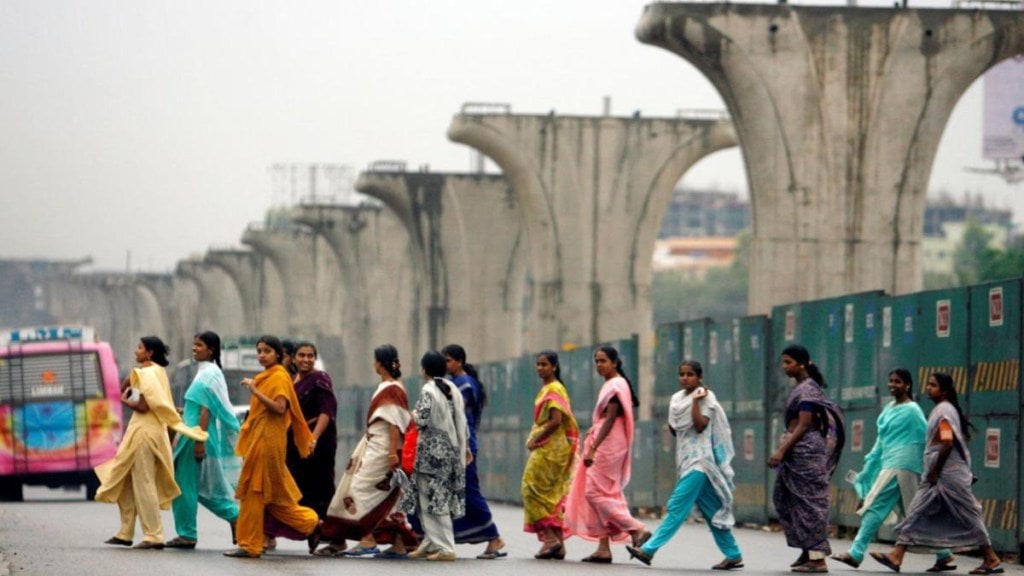In the biggest overhaul of India’s labour regulations in decades, the Centre has notified that all four Labour Codes, namely the Code on Wages, 2019, Industrial Relations Code, 2020, Code on Social Security, 2020 and the Occupational Safety, Health and Working Conditions Code, 2020, will come into effect from November 21.
The rollout replaces 29 existing Central labour laws, merging them into four streamlined codes, a move the Centre has described as a “historic modernisation” of India’s labour system. It comes more than five years after Parliament passed the laws in 2020.
Labour Minister Mansukh Mandaviya, announcing the implementation on X, said the codes would ensure timely minimum wages for all workers, appointment letters for all employees, equal pay and greater workplace dignity for women, gratuity for fixed-term employees after one year, free annual health check-ups for workers over 40, among other things.
A senior government official told IE that while the Acts are notified, the rules will be rolled out in the next 5-7 days and sections not requiring rules will be implemented immediately.
What labour codes mean for women workers?
The new framework expands women’s rights and protections significantly, with several progressive reforms meant to enhance workforce participation. As per the new codes, women have now been permitted to work at night across all sectors, including mining and heavy industries, subject to consent and necessary safety arrangements.
Moreover, equal pay for equal work is codified and enforceable. The new codes will ensure mandatory women’s representation in workplace grievance redressal committees. Parents-in-law have been added to the definition of family for women employees. For export and manufacturing sectors, night shifts are permitted with consent.
The Maternity Benefit Act was amended in 2017, extending paid maternity leave for women workers from 12 weeks to 26 weeks, The new reforms also mandate crèche facilities in all establishments with 50 or more employees.
Swiggy, Zomato to allocate 2% for gig workers
For the first time, India has legally defined gig workers, platform workers and aggregators within the labour framework. This brings app-based workers, such as food delivery agents, ride-hailing partners and couriers, under formal social security provisions.
Companies like Swiggy, Zomato, Blinkit, Zepto, Ola, Uber and other aggregators will now be required to allocate up to 2% of their annual turnover towards social security funds for gig and platform workers.
Under the Code on Social Security, gig and platform workers will become eligible for provident fund-type schemes, insurance benefits, disability cover, maternity support, old-age protection, among other state-sponsored welfare measures.
These measures are likely to reshape India’s gig economy, which employs over 70 lakh workers, as per the 2020-21 figures by Niti Aayog. The report further stated that the number is likely to expand to 23.5 million by 2029-30.
